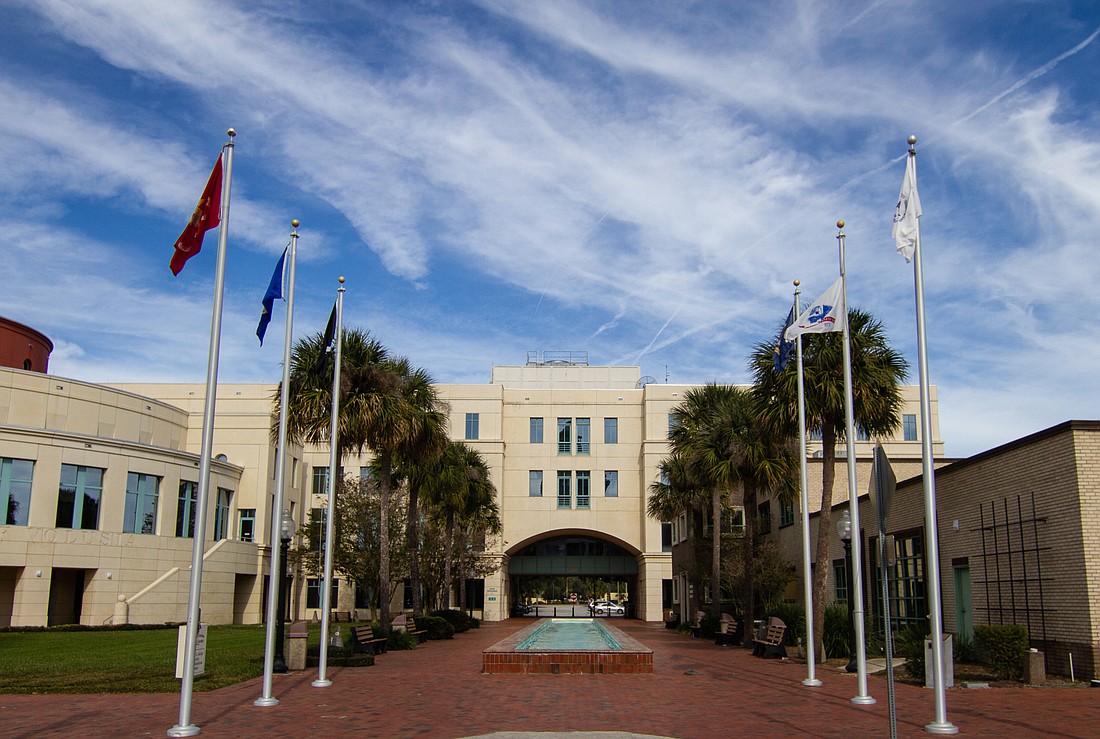- April 7, 2025
Your free article limit has been reached this month.
Subscribe now for unlimited digital access to our award-winning local news.

Volusia County's communication services tax will sunset on Dec. 31.
Residents who live in unincorporated areas of the county — such as Ormond-by-the-Sea — will see a slight tax reduction by way of the county's municipal district service millage rate, as the sunsetting will eliminate about 0.2845 mills, or $0.2845 per $1,000 in taxable property value. The average annual communication service tax paid per unincorporated area resident is $27.74, according to the county.
The elimination of the tax was approved in a 6-1 vote at a special Volusia County Council meeting on Wednesday, Aug. 30. The council had decided at an Aug. 15 meeting to pursue a sunset provision. At that meeting, Councilman David Santiago, a former state representative, said he had never been in favor of the tax, and that he believed the $3 million in revenue it generated could be made up by using county reserve dollars.
At the Aug. 30 meeting, Santiago voiced similar remarks.
"This particular [communication services tax] has been a target of mine, I guess I should say, from when I was in the Legislature — never been a fan of it," he said. "It was just created to allow local government to tax the people in other ways that weren't quite the most transparent."
He added that he'd like to see the council adopt a resolution to encourage other elected bodies to eliminate the tax in their 2024-2025 budgets. Municipalities will be voting on their next fiscal year's budget in the coming weeks.
When there's a day that ... we collectively can give tax relief to our residents, it's a good day for Volusia County."
— TROY KENT, county councilman
Volusia began collecting a communication services tax — which, as outlined by the state, places taxes on telecommunication services — in 2002 at 5.22%; the tax rate has remained unchanged. Florida also collects the tax statewide, at a rate of 7.44%.
In Volusia, the communication services tax generated about $3 million a year for the MSD fund, which includes expenditures for the Volusia Sheriff's Office, Growth and Resource Management, Animal Control, Parks and Recreation and transfers to other funds, according to the county.
Councilman Don Dempsey was the only one to vote against eliminating the tax, saying he believed it was a fair taxing system.
"This is a flat tax," he said. "It's a usage tax. ... If you're using the communication system, then you should pay a tax. The wealthiest person or the poorest person, everybody's paying the same rate."
Santiago said he agreed with Dempsey philosophically about the benefits of flat taxes. But he argued that because taxes are a statewide issue, the council should do what it can to give financial relief to its citizens, especially considering that the MSD fund reserves are at 94%, totaling over $38 million.
"It's already been identified that we have a lot of money in reserves here," Santiago said. "We have an opportunity to get rid of a tax."
Councilman Troy Kent agreed.
"When there's a day that ... we collectively can give tax relief to our residents, it's a good day for Volusia County," he said.
Only one resident spoke at the meeting. Keith Chester, of DeLand, said cutting the communication services tax was premature and would hurt the young working class if the council chooses to increase property taxes in the future to offset the revenue lost by eliminating the tax.
"I'm for cutting taxes, but this really is a backwards way of doing things," he said. "Y'all haven't even determined what your core needs are or how you're going to fund them. That's got to be done first."
County Council Chair Jeff Brower said it's so hard to cut taxes, and the council should take any opportunity to do so.
"It's not huge, but we have to start," he said. "I think we need to spend a lot more time looking at expenses in property taxes so that we can reduce that, because it is an unfair taxing system the way it's grown."
Your free article limit has been reached this month.
Subscribe now for unlimited digital access to our award-winning local news.